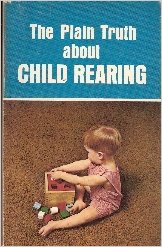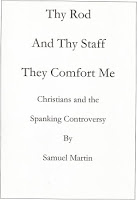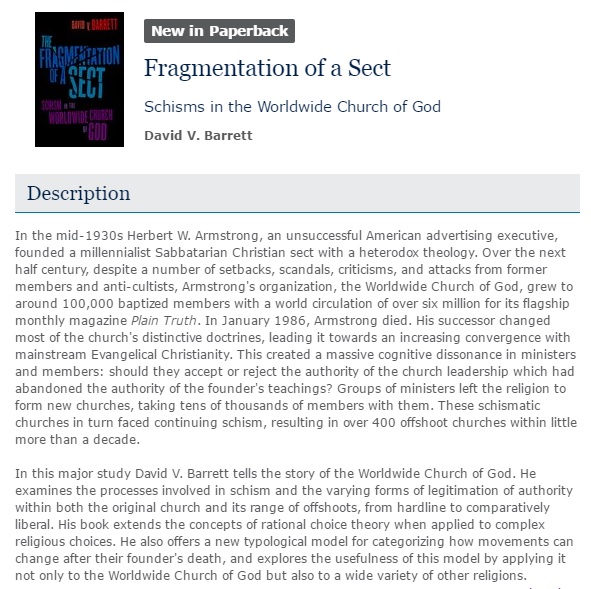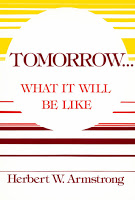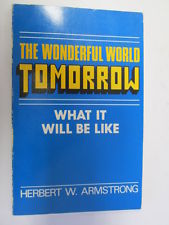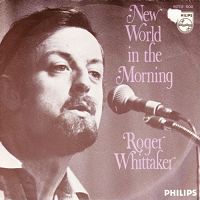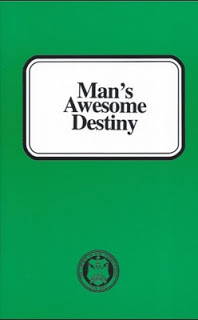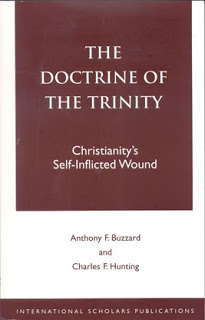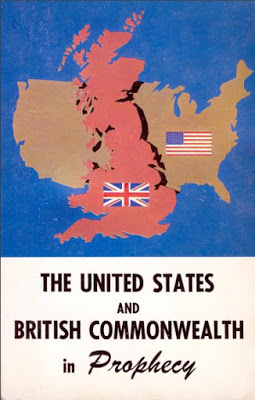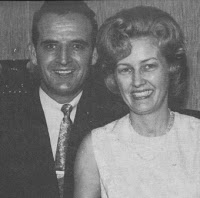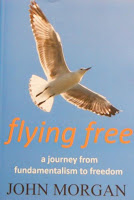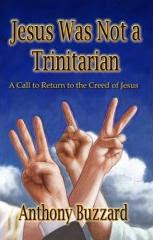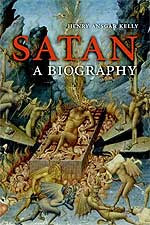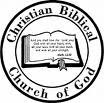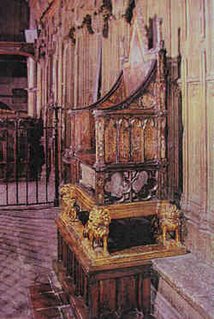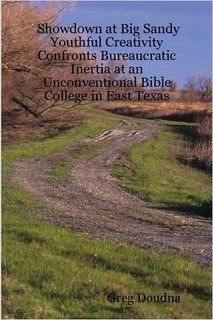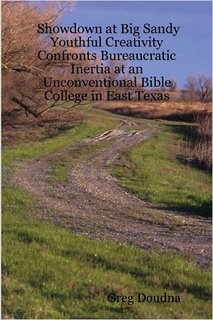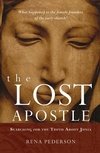It isn't quite on the same scale as recovering the Great Library of Alexandria, but just before Christmas I stumbled on the long lost flash drive that held the original AW (oAW) archives. Now they're backed up on the desk-top computer, it may be timely to reinject a few bits and pieces back into cyberspace...
To begin with, here's a review that appeared on oAW of Dave Albert's book "Difficult Scriptures." It's a straight copy and paste, and hasn't been revised or updated.
A belated review of Difficult Scriptures: Coming to Grips with the Law of Moses in the Worldwide Church of God by David Albert, Tyler House, 1996
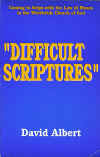 Dave Albert was best known to the public as one the presenters for The World Tomorrow in its last years. That such a high profile minister would come out in favor of the changes within the Worldwide Church of God must have been a huge asset for the church's leadership. That he would set his hand to writing a book about it was surely a much-needed gift for the beleaguered sect.
Dave Albert was best known to the public as one the presenters for The World Tomorrow in its last years. That such a high profile minister would come out in favor of the changes within the Worldwide Church of God must have been a huge asset for the church's leadership. That he would set his hand to writing a book about it was surely a much-needed gift for the beleaguered sect.
And yet, Albert's book seems to have quickly disappeared without trace. Published under a largely unknown imprint (Tyler House), it “did the rounds” for a time, going through at least three print runs, before sliding into oblivion. It didn't even rank a mention in Michael Feazell's later Liberation of the Worldwide Church of God.1 Today, the only way you're likely to get a copy is through a second-hand book service like Alibris.
Yet this book is the only one targeted at church members, the people most affected by the WCG's about face. Joe Tkach wrote Transformed by Truth for the larger evangelical market, and is seen by many as another part of the church's PR campaign to gain wider acceptance. Mike Feazell's Liberation also explains the church's journey (or, more accurately, the leadership's journey) to those on the outside. Albert however, took on the more difficult (and urgent) task of convincing those within the community he served. More than that, he was prepared to vigorously confront the proof texts and arguments that were being used to counter the new teachings.
Albert summarizes his case in three steps (p.188):
-
The law of Moses is no longer required of Christians.
-
The food laws and sacred day laws are part of the law of Moses.
-
Therefore, the food and day laws are now matters of conscience and are no longer binding on Christians as matters of obligation.
WCG members will know that both the literature and sermons of the Armstrong era had a certain style and delivery which set them apart from most other Christian traditions. Even in a closely related sect or denomination (the Church of God (Seventh Day) or Seventh-day Adventists, for example) the difference was easily noticeable. Albert's strength is in knowing – and using – the familiar approach. In some ways the book is an extended sermon crafted to resonate with members.
How successful was David Albert? In doing research for this review2 I found that for a number of people it had been an important step in moving beyond the old teachings. In fact, several found it more helpful than anything the church itself produced. In contrast, one correspondent3 provided a copy of comments he had written that critiqued Albert's thesis from a pro-law perspective.
Albert's key thesis, that the Ten Commandments, Sabbaths and food regulations were an integral part of the Old Covenant, and that any distinction between the “spiritual law” and the “law of Moses” is illusory, is argued with relentless logic and passion. It is to the author's advantage that he already knows the likely objections, and his treatment of these is often devastating. It's hard to imagine anyone holding the assumptions most members have about the Bible, coming away from this book with any ideas about the timeless value of Old Testament observances unshaken.
Albert is at his best when addressing the weaknesses in Herbert Armstrong 's theology. Chapter 3 tackles the inconsistencies in the church's former position on clean and unclean foods, with Albert taking the reader through the article “Is All Animal Flesh Good for Food.” He is clear in his rejection of the old teaching:
Unfortunately, the logic used by Herbert Armstrong is without Biblical basis. He declared the food laws not part of the laws of Moses simply on his own authority. He then indicated that we ought to keep them because they're good for our bodies, and that's that! ... What begins not as spiritual sin, but merely as “physical sin,” proves in the end to be real sin after all because lusting after something wrong. (p.49)
It becomes obvious that Herbert Armstrong 's reasoning is not a sound Biblical treatment of the subject of the food laws. It wins support by inventing an extra-Biblical law, language, and logic. Worst of all, it contradicts the words and teachings of Jesus Christ. (p.50)
Does the book have weaknesses? I believe so. Albert seems, for example, unfamiliar with recent Biblical scholarship (though he does cite a few credible sources), and still holds firmly to a hierarchical paradigm.4 Chapter 15, an excursus into eschatology (why the Sabbaths seem to reappear during the Millennium) is particularly dodgy. None of these factors, however, detracts from the force of his overall presentation, which makes the failure of the WCG's leadership to use this resource to their best advantage stunning.
David Albert expresses his confidence in the way reforms are proceeding in the church (remembering that he wrote in 1996):
To its credit, the Worldwide Church of God has adopted the Biblical teaching and policy [referring to Romans 14:5] that no longer finds it warring with itself and others on matters of conscience. It is a policy that promotes peace and preserves unity, a policy we can live with.
Such rose-colored optimism seems a little unjustified in hindsight. He concludes with a plea to those who have left to “come home”.
May I say that I think your place is here – here in the same fellowship of which you have always been a part. Your place is is with us, your brethren, your spiritual family. We are not the same without you. Please come back to that part of the body into which you were called.
However, the most telling factor among those who have expressed a warm appreciation for David Albert's book to me is this: the overwhelming majority5, who were members at the time they first read those words, were, eight years later, no longer associated with WCG.
Perhaps he did a better job than he realized.
GR
Notes
1. Feazell also failed to mention Earl Williams. See the AW review of his book.
2. I asked for impressions on Mark Tabladillo's JLF group, and Douglas Becker's Missing Dimension group, as well as receiving further unsolicited comments from several readers who had seen the book review mentioned as a pending item on the Ambassador Watch website.
3. Available at http://www.webspawner.com/users/wmstorey/index.html
4. In chapter 6 Albert describes Peter as “pre-eminent church elder”, and is at pains to relegate James to a lower status, although it's unclear why he sees this as significant. The concept of the priesthood of all believers is notable by its absence from the book. He states “the living Christ has mandated change for the Worldwide Church of God” (p.187), but seems to have little concept of what the term mandate involves.
5. One gentleman, WCG elder Oleh Kubik, constitutes the main exception. Mr. Kubik's congregations, however, seem to have failed to "catch the vision". Once with more than 450 attending in two locations, the faithful have been reduced to a mere handful which meets once a month.



